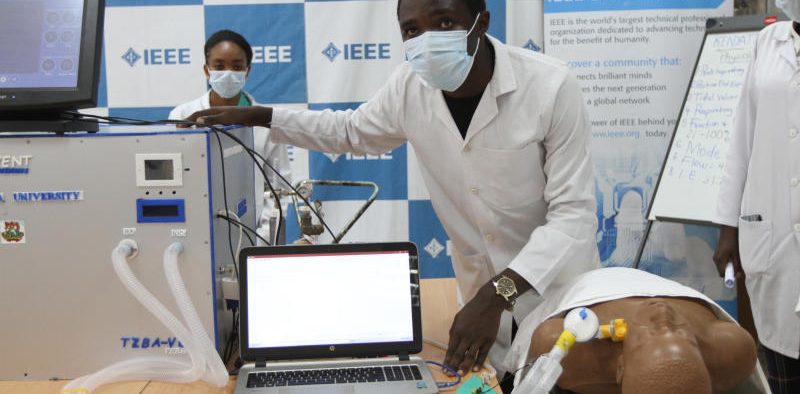- Prototype passed all ISO quality tests
- Product was launched at a time when the healthcare system is facing daunting challenges caused by Covid 19
- The low-cost ventilator comes at a tenth of the price of an imported machine – estimated at $10,000.
by Eric Obwogi
The pandemic hit hard. Kenya’s healthcare sector jolted by the Covid – 19 pandemic and gaps in supply chain to industries exposed, making production of personal protective equipment to treat the critically ill an uphill task. Prior to the Covid-19 pandemic, Kenya had only 259 functional ventilators
With overseas sources cut off by stringent virus containment measures, brilliant young Kenyan minds got cracking and innovated themselves into the history books by making the country’s first locally assembled ventilator to help treat patients severely affected by the corona virus.
In May, engineering students in collaboration with the medical department at Kenya’s Kenyatta University launched the prototype. The ventilator was made according to ISO standards, the Kenya Bureau of Standards and Pharmacy and Poisons Boards standards.
Fidel Makatia, who is leader of the group, said: “This prototype has been tested and it has been shown to meet all the parameters that are required in helping a patient to breath.”
“This ventilator detects oxygen and normal air then it gives it enough pressure and volume required to ventilate a patient, then passes it through a humidifier to give it enough humidity and temperature required for the human body,” he added.
A sick person also needs a higher percentage of oxygen than normal. “We are breathing 21 percent of oxygen because we are normal. But patients may require a higher percentage – thirty, forty, up to maybe eighty percent.”
“Our young innovators hope to fill the Covid-19-related ventilator shortage in Kenyan hospitals, and possibly supply across the borders,” said Prof. Nicholas Gikonyo, Associate Professor, School of Pharmacy at the institution.
Kenyatta University facilitated the innovation by providing mentors and housed the assembly at the Chandaria Business Incubation and Innovation Centre guaranteeing efficient operations and eventual quality of the prototype. The low-cost ventilator comes at a tenth of the price of an imported machine – estimated at $10,000.
The KU group committed to produce at least 50 such machines every fortnight. “We have a team of professionals who will oversee mass production of ventilators to supply the local market as well as the African continent,” said Prof. Gikonyo.

